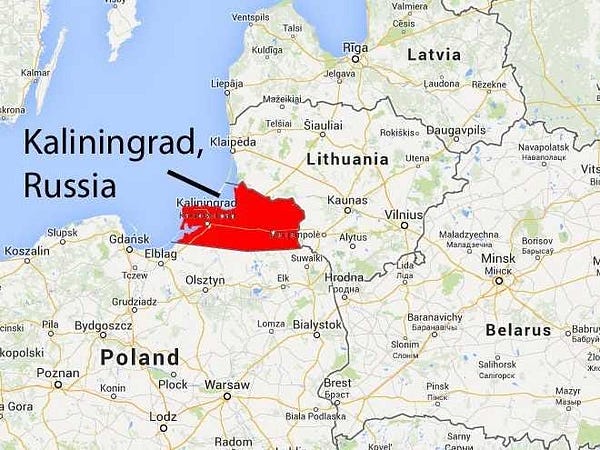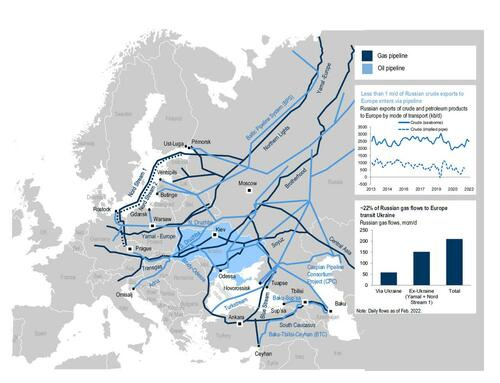Readers who happen to be lawyers might be expecting a legally related post, but … no. This is a Ukraine - Russia update, mostly brief links.
The title comes from a phrase that Lt Col Daniel Davis uses in this brief video interview: there’s “no rational basis” for continuing this insane war against Russia in Ukraine in the expectation that Ukraine will somehow “win”:
There’s a study out that’s getting a fair amount of attention today. It was published by the leading UK military think tank:
What the author is talking about is industrial scale warfare. These initial paragraphs will give you the idea:
The war in Ukraine has proven that the age of industrial warfare is still here. The massive consumption of equipment, vehicles and ammunition requires a large-scale industrial base for resupply – quantity still has a quality of its own. The mass scale combat has pitted 250,000 Ukrainian soldiers, together with 450,000 recently mobilised citizen soldiers against about 200,000 Russian and separatist troops. The effort to arm, feed and supply these armies is a monumental task. Ammunition resupply is particularly onerous. For Ukraine, compounding this task are Russian deep fires capabilities, which target Ukrainian military industry and transportation networks throughout the depth of the country. The Russian army has also suffered from Ukrainian cross-border attacks and acts of sabotage, but at a smaller scale. The rate of ammunition and equipment consumption in Ukraine can only be sustained by a large-scale industrial base.
This reality should be a concrete warning to Western countries, who have scaled down military industrial capacity and sacrificed scale and effectiveness for efficiency. This strategy relies on flawed assumptions about the future of war, and has been influenced by both the bureaucratic culture in Western governments and the legacy of low-intensity conflicts. Currently, the West may not have the industrial capacity to fight a large-scale war. If the US government is planning to once again become the arsenal of democracy, then the existing capabilities of the US military-industrial base and the core assumptions that have driven its development need to be re-examined.
Note, of course, that when the author says “the West” or “Western countries” he really means “the United States”. He goes on to demonstrate that the US is one of those deindustrialized countries that lacks the industrial base to compete with Russia in any large scale conflict—that’s one of the major lessons that has already emerged from the Ukraine conflict. In other words, there’s “no rational basis” for the war that the Neocons ginned up against Russia.
For an extended discussion of this article and its further implications, I’ve cued up this video:
BTW, if it was madness to have started a war with Russia over Ukraine, how smart would it be to start a war over … Lithuania?

Hmmmm. This is embarrassing—or should be:


Another lesson for would be US proxies—look before you leap. Despite all the blather about a Rules-Based Order, international law still has meaning:


All these provocations are not only pointless, they’re also dangerous. They may ultimately provoke a response. Here’s a well intentioned warning:
IEA: Europe Should Prepare For Complete Russian Gas Shutdown
By Irina Slav of OilPrice.com
Europe should prepare for a complete suspension of Russian natural gas deliveries, the head of the International Energy Agency told the Financial Times in an interview.
“Europe should be ready in case Russian gas is completely cut off,” Fatin Birol told the FT. “The nearer we are coming to winter, the more we understand Russia’s intentions,” he added. “I believe the cuts are geared towards avoiding Europe filling storage, and increasing Russia’s leverage in the winter months.”
Here’s some more good advice, courtesy of Moon of Alabama: Know your enemy:
by Helmholtz Smith
American and Western policy towards Russia is founded on two serious errors. (A considerable understatement, of course – the past thirty years show that conventional Western ideas of Russia are almost completely wrong.)
But these two are endlessly repeated and, no matter how many times they are proven wrong, they remain the foundational assumptions of the West's attempts to change or control Russia.
First is the idea that the Russian economy is feeble, unbalanced and dependent on income from the West. The second is that Putin is the chief of a band of thieves who, who if made to feel pain, will get rid of him. Sanctions will collapse the first and bring the pain to cause the second.
It’s a decent discussion.




If you have the time ...
https://odysee.com/THE-EU-KILLS-ITSELF-2:805541f2608b1caafbd15158e068ee923992a9d4
Has it occurred to any of these “geniuses” that Putin could bring the EU and the US to their collective knees by withholding gas, strategic metals and a host of other commodities without ever firing a shot?
Do they not understand that they have “outsourced” this country to such a degree that the “sleeping giant” that Yamamoto feared after Pearl Harbor is now nothing more than a hollowed out shell? The author is spot on, we had best rethink the idea that we can go toe to toe with a country that still possesses the industrial might to call our bluff.
This whole episode is so irrational that it beggars the imagination and defies explanation by any normal human standards.
Off topic, but have you seen the “behavioral notes” that Biden’s handlers have him using? U n b l I e v a b l e! We are truly in deep doo doo folks.